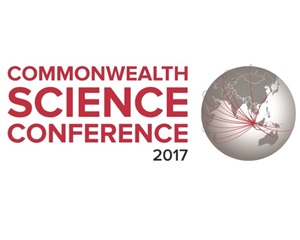New Delhi, 17 August 2017: Professor Indira Nath, MD, FRCPath, DSC, founder and former Head of Department of Biotechnology at the All India Institute of Medical Sciences (AIIMS) was in Singapore to speak at the Commonwealth Science Conference, organized by the Royal Society and the National Research Foundation, Prime Minister’s office. She also addressed students at the Management Development Institute of Singapore (MDIS), speaking at length about new and emerging medical technologies, the role and impact of urbanisation on health, and on Leprosy and immunology, the subject of her research and study.

“We see a multi-disciplinary approach to healthcare today, with the merging of technology, engineering, computing and more in the development of new and emerging medical technologies,” shared Prof Nath.
These new and emerging medical technologies include:
- Wearable health monitoring technologies – using biosensors that provide real-time feedback for monitoring of diseases, post-op patients, the elderly and more
- Electroceuticals – possibly the future of medicine; implantable stimulators like electrodes are placed below the skin to stimulate nerves and modulate neural signals. Presently, it is in the testing stage and holds great potential to replace drugs in the future
- Crispr-Cas 9 (nature’s tool) – this genome editing tool is creating a buzz in the science world and set to revolutionise biology. It is faster, cheaper and more accurate than previous techniques of editing DNA and has a wide range of potential applications. Of critical importance is that it could be used to combat Antibiotic/multi-drug resistance
- Lysibodies – possibly a promising new weapon against drug-resistant bacteria; Lysibodies could be used to target a range of difficult to treat pathogenic bacteria
- Vocal Biomarkers – analyse vocal cues like pitch, tone, rhythm, rate and volume to diagnose mental health issues, post-traumatic stress disorder, depression and more
- 3D Printing – in the exploration stages of embryo development on a 3D printed surface and also the development of organs like a kidney or a cast to assist with basic immobilization
Shedding light on the impact of urbanization on our health and environment, Prof Nath said, “The human population is healthier than ever before but to achieve this we have exploited the planet at an unprecedented rate.” The ill-effects of unplanned urbanisation has led to increased levels of carbon dioxide emissions, ocean acidification, energy use and tropical forest loss.
More than half (53%) of the world’s population live in the Asia Pacific region, with 48% living in urban areas. What this implies is a “Triple Burden for Health” – 1. Existing and emerging infectious diseases, 2. Emerging lifestyle diseases, and 3. Injuries due to accidents.
Human health is inextricably linked to urban health. This inter-relationship plays out in long chains of causation, wherein one factor influences another to eventually affect the health of individuals and communications. Presently, we are seeing a worrying cumulative load on our health system.
On her study and research into leprosy, the disease has remained prevalent in Brazil and India, and the need to eradicate it is urgent; leprosy is the only bacteria that infects the nerves and T-Cells, not anti-bodies are needed to kill the bacteria. Non-invasive tools like high resolution Sonography and Colour Doppler, in combination with immune tests may help in understanding leprosy reactions. There is also the potential for diagnosing impending reactions and making a decision on anti-reaction treatment.
These insights were shared with students, corporate members, industry leaders and partners at the Management Development Institute of Singapore (MDIS), Singapore’s oldest not-for-profit professional institute for lifelong learning.
The MDIS School of Health and Life Sciences was the first of its kind among PEIs in Singapore. It has opened doors for students from India and all over the world to pursue their passion in a richly diverse and fascinating field.
The MDIS School of Health and Life Science’s industry-relevant and practical curricula, offered in partnership with Northumbria University, UK and Leeds Beckett University, UK aim to equip graduates with the knowledge and skills they need to stay abreast of the exciting developments in Safety, Health, and Life Sciences. In addition to developing subject-based expertise and skills, the content of the courses are relevant and applicable to an international community of students.
For Indian students aspiring to study in Singapore, MDIS’ School of Health & Life Sciences offers a progression pathway from Diploma to Degree to Masters. With specialisations in biomedical sciences, biotechnology, health sciences (management), nursing and safety, health and environmental management, graduates are equipped to pursue a wide spectrum of careers in research and clinical laboratories, in health and safety, as well as in the burgeoning biomedical, pharmaceutical, biologics, biotechnological, healthcare, power generation and shipping industries.
